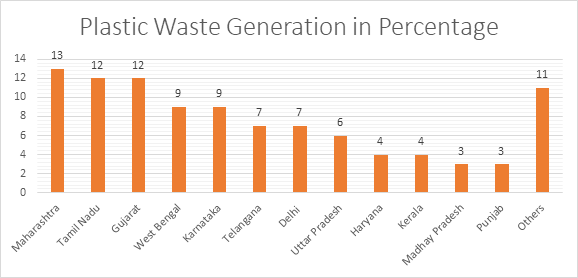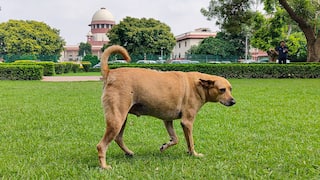Ban On Identified Single Use Plastic Items | What Will India Do From July 1? Details Here
The Union environment ministry has said India will ban the production, sale, and use of identified single use plastic items that have low utility and high littering potential from July 1

The government is set to ban single use plastic items from July 1. The Union environment ministry on Tuesday said India will ban the production, sale, and use of identified single use plastic items that have low utility and high littering potential from July 1.
How will India enforce ban from July 1
The government will ban manufacture, import, stocking, distribution, sale, and use of identified single-use plastic items.
Why banning single use plastic items
Plastic items have low utility and high littering potential. It has become one of the most pressing environmental issues.
Banned single use plastic items: Less than 100 micron
List of single used plastic items prohibited w.e.f July 01, 2022
| Items | List of single-used plastic items prohibited w.e.f July 01, 2022 |
| Plastic sticks
| Ear Buds |
| Ballons | |
| Candy | |
| Ice-Cream | |
| Cutlery items
| Plates, cups , glasses, forks, spoons, knives, trays |
| Glass | |
| Forks | |
| Spoons | |
| Knives | |
| Trays | |
| Packaging/Wrapping Films
| Sweet Box |
| Invitation Cards | |
| Cigarette Packets | |
| Other items
| PVC banners < 100 µm, polystyrene for decoration |
| Polystyrene for decoration |
Source: CPCB
Background of the ban
India had piloted a resolution at the 4th United Nations Environment Assembly held in 2019 on pollution caused by single-use plastic products.
In the 5th session of United Nations Environment Assembly in March 2022, India engaged constructively with all member states to develop consensus on the resolution for driving global action on plastic pollution.
Role of Central Pollution Control Board (CPCB)
CPCB grievance redressal app has been launched to empower citizens to help curb plastic menace.
For wider public outreach, PRAKRITI, a mascot was also launched on 5th April.
How will the ban be enforced?
Environment Ministry task force to check any illegal manufacture, import, stocking, distribution, sale and use of banned single-use plastic (SUP) items
Plastic waste generation in India
- India generates about 41 lakh (4.12 million) tonnes of plastic waste every year.
- The per capita plastic waste generation has almost doubled over the past five years.
- Per capita plastic waste generation in India annually is 3.5 kg.
- Single use plastic waste of total plastic consumption is 10 to 35 per cent.
Plastic waste generation (state-wise)

Plastic recycle
About 9 per cent of the total plastic produced globally gets recycled. About 12 per cent is incinerated and energy is recovered, while the rest 79 per cent gets into land, water, and ocean, and pollutes the environment.
What will be the penalty if you violate rules
According to the law, imprisonment up to 5 years, or a penalty up to Rs 1 lakh, or both can be slapped on a person if he violates rules.
Ban in foreign countries
- 2002 - Bangladesh became the first country to ban thin plastic bags
- 2019 - New Zealand became the latest country to ban plastic bags
- 2020 - China issued a ban on plastic bags with phased implementation
- As of July 2019 - 68 countries have imposed ban on plastic bags with varying degrees of enforcement
Plastic in water bodies
The seas near Mumbai, Kerala and the Andaman and Nicobar Islands are among the worst polluted in the world.
Plastic debris affects at least 267 species worldwide, according to reports.
It affects 86 per cent of all sea turtle species, 44 per cent of all seabird species, and 43 per cent of all marine mammal species.
Significant amount of toxic heavy metals such as copper, zinc, lead, and cadmium recovered from plastic wastes from sea shores have an adverse effect on the coastal ecosystems.
Lead and Cadmium pigments, commonly used in most of the plastics as additives are hazardous in nature and are known to leach out.
Several greenhouse gases are emitted from the landfills. Among them, carbon dioxide and methane constitute 90 per cent to 98 per cent.
Source: TERI
Recycling of plastic
- A plastic can be recycled 7-9 times before it is no longer recyclable.
- Every ton of plastic waste recycled results in a saving of approximately 3.8 barrels of petroleum.
- Technologies are available in India that can convert 1 kg of plastic to 750 ml of automotive grade gasoline.
- Shredded plastic waste can be used in laying roads.
- Jambulingam Street in Chennai was one of India’s first plastic roads built in 2002.
- The National Rural Road Development Agency laid around 7,500 km of roads using plastic waste in 2015-16.
Source: TERI
Related Video
Union Budget 2025: Arvind Kejriwal lists the shortcomings of the Modi government's budget | ABP News | AAP





































